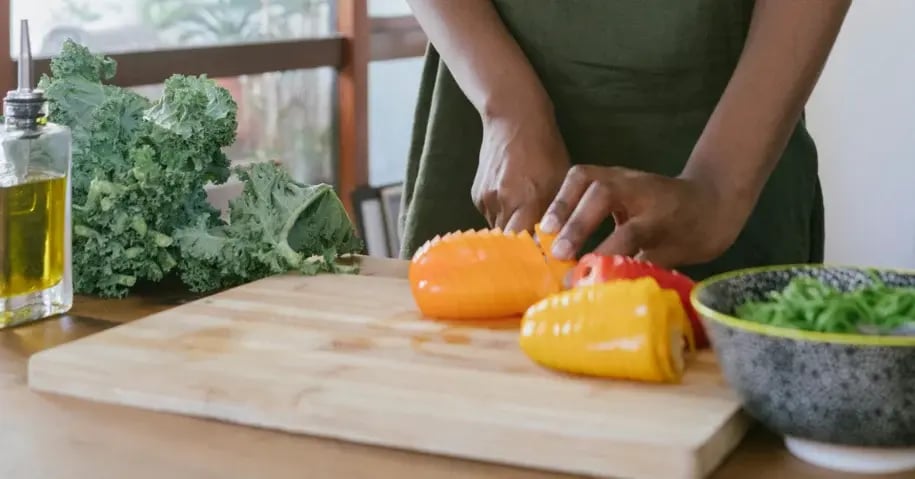Meal Prep for Elder Care: A Toolkit for Beginners

When you're juggling work and unpaid care for an elderly loved one, meal preparation can be one of the most challenging tasks to manage. It's about more than just putting food on the table—it's ensuring that meals are nutritious, easy to eat, and tailored to their specific health needs. At Helpr, we're here to support you. Here’s how to approach meal prep in a way that's both practical and supportive.
1. Assess Dietary Needs and Preferences
Start by understanding the specific dietary needs of your loved one. Do they have dietary restrictions like low sodium, low sugar, or high fiber? Are there foods they love or dislike? This information will help you plan meals that are not only nutritious but also enjoyable for them. If they have difficulty chewing or swallowing, focus on softer foods that are easier to eat.
To make things easier, Helpr has put together a collection of recipes tailored to the most common dietary needs of seniors.
2. Plan Balanced, Nutrient-Rich Meals

Aim for a balance of protein, vegetables, and whole grains in each meal. For example, a simple meal could include grilled chicken, steamed vegetables, and quinoa. Consider incorporating foods that are rich in omega-3 fatty acids, calcium, and vitamins to support overall health. If you're short on time, opt for easy-to-prepare options like pre-cut vegetables or frozen fruits that maintain their nutritional value.
3. Batch Cooking and Freezing
Batch cooking is a lifesaver when you have a busy schedule. Prepare large portions of meals that can be easily portioned out and frozen. Dishes like soups, stews, and casseroles freeze well and can be reheated quickly. Label each container with the date and contents, so you always have a nutritious meal ready when time is tight.
4. Use Meal Prep Tools and Gadgets
Invest in a few kitchen tools that make meal prep easier and more efficient. Slow cookers, blenders, and food processors can help you prepare meals with minimal effort. For example, a slow cooker can be used to prepare a hearty stew with minimal hands-on time, while a blender can create nutritious smoothies packed with fruits and vegetables.
5. Incorporate Snacks and Hydration
Don’t forget about snacks and hydration throughout the day. Keep easy-to-eat, nutrient-dense snacks like yogurt, fruit, or nuts on hand. Encourage regular hydration by offering water, herbal teas, or fruit-infused water, especially if they’re not in the habit of drinking frequently.

6. Lean on Helpr
Did you know Helpr can connect you with a care provider to assist with more than just direct care? Our providers can help with meal prep, medication management, and activities of daily living—that’s why we started this program. We want to help you find a provider that is tailored to your exact needs.
Let us find the right support to make your caregiving journey easier.









